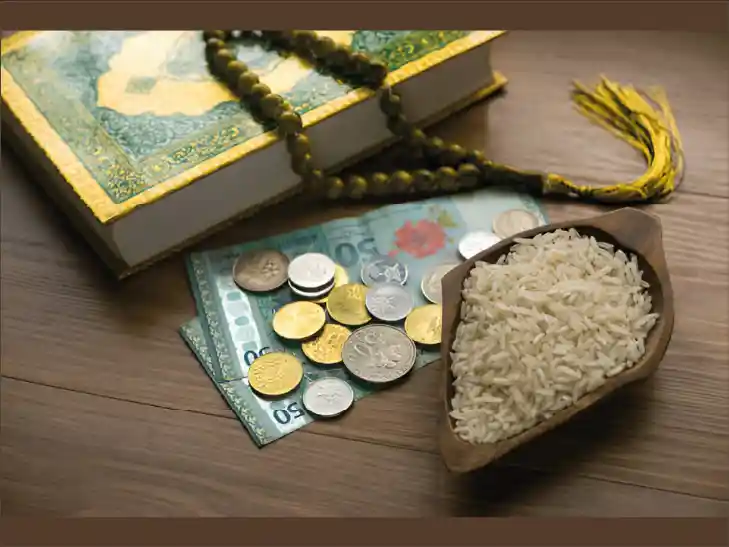The Role of Salah in Forming a Peaceful Mind
“Hayya Alal Salah “Rush to Salah
Hayya Alal Falah” Rush to success”
Salah is the second of the five pillars of Islam. The five daily prayers, namely, Fajr, Dhuhr, Asr, Maghrib, And Isha, have been made obligatory upon us so that we can actively connect with Allah throughout the day. However, instead of seeing prayer as a way to converse with the Almighty and build a stronger bond with Him, most Muslims say their prayers simply to fulfill an obligation to their Lord.
The aim of today’s blog is to help people learn about the purpose, importance, and benefits of performing Salah, as well as how it helps us to calm our minds.
The Purpose of the Five Daily Prayers
The purpose of prayer has been directly put in the Holy Quran, as such –
“Recite, [O Muḥammad], what has been revealed to you of the Book and establish prayer. Indeed, prayer prohibits immorality and wrongdoing, and the remembrance of Allāh is greater. And Allāh knows that which you do.”
(Surah Al-’Ankabut: Verse 45 )
The act of performing Salah reinforces our Iman. The remembrance of Allah in Salah, five times a day, consequently makes it easy for us to shield ourselves from committing sins that Allah has prohibited.
When we stand up for prayer, we are engaging in a conversation with Allah. One instance of this is in a Hadith Qudsi narrated by Abu Hurairah (may Allah be pleased with him), where Prophet Muhammad (SAW) has declared that Allah (SWT) responds to every verse of Surah Al-Fatiha recited during prayer. (Source: Sahih Muslim 395a)
The Importance of Prayer
Salah holds such eminence in Islam that it will be the first thing that a person will be accounted for on the day of judgment. If a person is lacking in those, Allah will see if there are any voluntary prayers to make up for it (Sunan an-Nasai). This hadith alone shows us how significant these prayers are for the Day of Reckoning to start with their accountability.
It is of utmost importance that a believer does not leave their prayer under any circumstance, as Buraidah (May Allah be pleased with him) reported:
Messenger of Allah (ﷺ) said, “That which differentiates us from the disbelievers and hypocrites is our performance of Salat. He who abandons it, becomes a disbeliever.”
However, a true believer in Allah must ensure that he is attentive in his prayer, as the hypocrites pray as well; the difference is that they do it just for the show, not to please Allah. Allah says in Sura Al-Maun,
“So woe to those ˹hypocrites˺ who pray, yet are unmindful of their prayers;”
It is noteworthy that even a sick person is encouraged to fulfill his daily prayers in whichever manner is comfortable to him. If praying standing is hard for him, he may pray sitting. If sitting is hard for him, he may pray lying. Nonetheless, these prayers must be conducted by him.
How Mindfulness in Salah Cultivates a Calm Mind
Form of Meditation: A mindful prayer can be seen as a form of meditation. The act of raising our hands and saying ‘Allahu Akbar’ to start our prayer symbolizes leaving the worry and thoughts of the material world behind and giving our undivided attention to our Creator.
Less Disappointment, More Gratitude: When we pray with such mindfulness five times a day, we are submitting ourselves to Allah. Building this rapport with Allah increases our faith in him, and our conviction in the Rizq Allah has bestowed upon us gets stronger. As a result, we slowly stop getting upset when things don’t go our way, as we understand Allah’s plan for us is better than any plan we could have for ourselves.
Moreover, Salah is also a way we show gratitude to Allah. Thoughtfully thanking for all the blessings He has provided us with helps us realize all the things we have overlooked and taken for granted. It renews our thankfulness and allows us to be more satisfied with whatever Allah has blessed us with.
Resetting the mind: Talking to Allah in sujood and after saying Salam can elevate a noteworthy amount of stress from our hearts. As we share our pain with As-Sami, the All-Hearing, we know our pain and worries are being truly heard. Thus, as we keep performing the salah of every waqt, whatever ill feeling we might have felt before that prayer can be washed away, giving us a clean slate with which we can jump right back into the world, but with a fresher and kinder mind.
The ‘Salah comes first’ mindset: Praying right when the waqt of that particular salah starts solidifies the mindset that the afterlife is more important than whatever we are doing in this world. It sets our priorities straight, helping to put away any affair that will hinder our prayer. This also helps the company we surround ourselves with to be respectful towards our choices and encourages them not to indulge us in things that can distract us from our salah.
The Consequences of Neglecting Salah
For something that is of such critical status in Islam, the consequences for being neglectful towards it are grave as well. Allah emphasizes this in the following verses of the Quran,
“But they were succeeded by generations who neglected prayer and followed their lusts and so will soon face the evil consequences.”
O you who have believed, let not your wealth and your children divert you from the remembrance of Allāh. And whoever does that – then those are the losers.
It is seen time and time again that whenever Allah blesses man with something, he forgets to show his gratitude and starts to think of himself as the master of his fate. He forgets who holds the true Power and neglects the Salah in which he incessantly begged for these blessings. These verses serve as reminders to always show our gratitude to Allah and not to follow our worldly drives as commanded by Allah.
Conclusion
When one treats their salah as a chore that just needs to get done, not only do they just stop at the door of a world full of blessings, but they also limit their bond with Allah from reaching its full potential. It is crucial for a believer to understand the depth of Salah, to taste the sweetness of Sujood, and to find comfort in the remembrance of Allah if he/she wants to attain peace, both in this life and the next.





